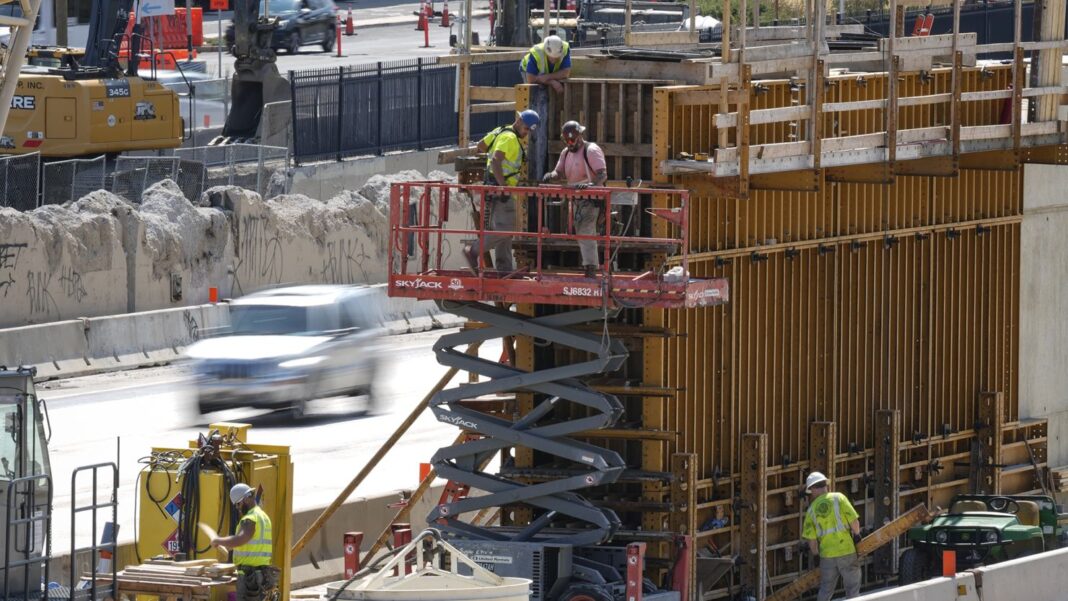The rise in the GDP is far from the expectations of many economists from earlier this year, many of whom had predicted a recession during the election year.
The U.S. economy continued its solid growth through September, defying expectations by powering ahead after an era of soaring inflation and high interest rates.
The economy grew 2.8 percent during the third quarter, according to the government’s initial estimate released Wednesday — the final GDP report before Election Day. Consumer confidence is rebounding, the labor market has held steady, and inflation is back to pre-pandemic levels.
That’s far from the expectations of economists from earlier in 2024, many of whom had predicted a recession during the election year.
“While critics thought we’d need a recession to lower inflation, instead we’ve grown around 3 percent a year on average, while inflation has fallen to the level right before the pandemic,” President Joe Biden said in a statement.
A White House official told reporters that recent reports on economic growth, employment and inflation reflect a so-called soft landing, meaning the U.S. has avoided a recession even amid the highest interest rates in decades.
The economy’s surprising resilience through the final months of the presidential campaign represents a positive outcome for Vice President Kamala Harris as she makes her closing argument to voters.
But it may not be enough for Democrats to hold on to the White House, with many voters still incensed over still-elevated price levels since Biden and Harris entered office.
“Why isn’t the sentiment higher? Why isn’t the economy rated higher?” Skanda Amarnath, executive director of the worker advocacy group Employ America
While Harris has chipped away at former President Donald Trump’s polling advantage when it comes to the economy, she still trails him in recent surveys. One prominent Trump ally told POLITICO that Harris is unlikely to benefit from the recent positive economic news because it has arrived too late in the cycle.
“People have made up their mind on the economy and Trump is well ahead. I don’t think any of that’s going to change,” they said.
The margins of the race in key swing states are razor thin and, when asked why the economic outcomes achieved under Biden had failed to resonate with voters, a White House official chalked it up to the lingering effects of the pandemic.
Still, gas prices — a major driver of economic sentiment — have fallen in recent weeks. Inflation in food prices has also cooled substantially. Consumers are much more optimistic about the outlook for the labor market and business conditions, according to a recent survey from the Conference Board.
“It’s kind of the same story: Why isn’t the sentiment higher? Why isn’t the economy rated higher?” said Skanda Amarnath, executive director of the worker advocacy group Employ America. “It has improved, and it will improve, and I expect barring some new shock — or a Federal Reserve mistake or financial market paralysis — I would expect to see better sentiment through next year.”
The economic update in the July-September quarter also reflected small declines in disposable personal income and savings rates. Consumer spending, however, remained a significant driver of economic growth in the quarter.
“Overall, the US economy continues to be surprisingly strong with growth well above what anyone would have expected six months or a year ago,” Jason Furman, a Harvard professor who chaired the Council of Economic Advisers in the Obama administration, posted on X. “Inflation coming down, consumers very strong and businesses investing at a high rate.” (https://www.politico.com/news/2024/10/30/economy-robust-growth-00186247)



































